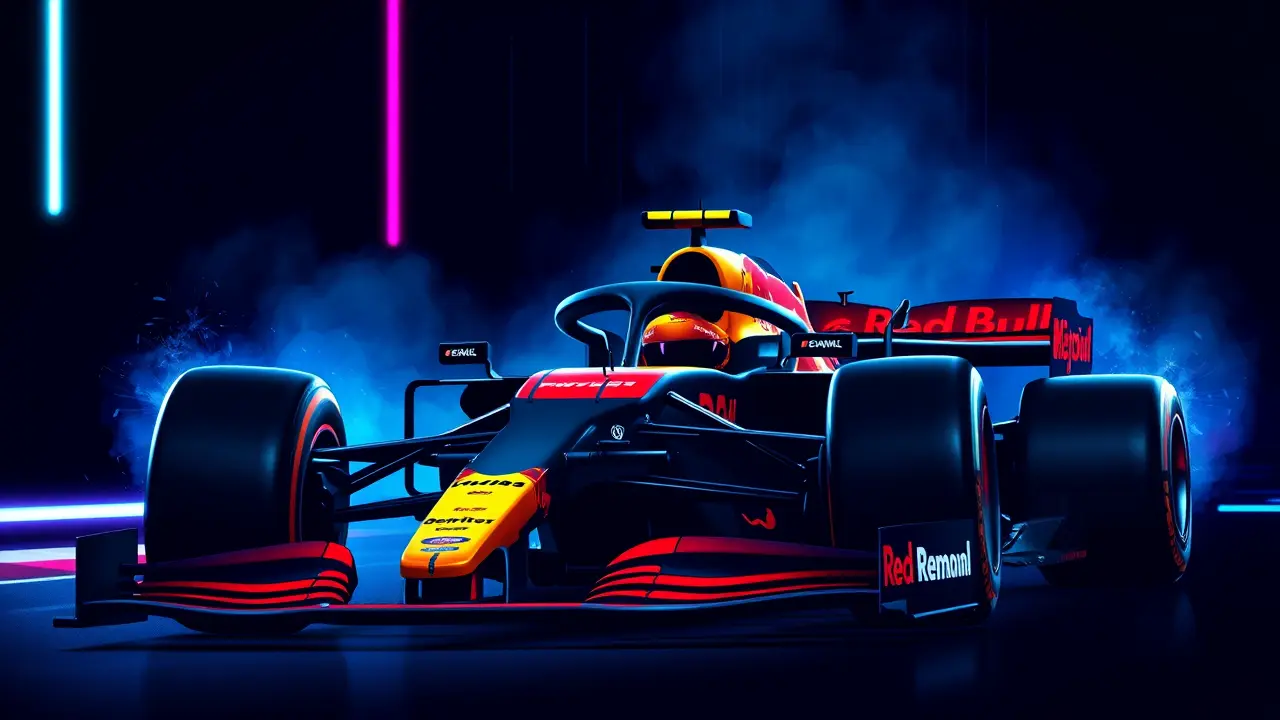Max Verstappen: Mekies helps Red Bull understand problems
In the high-octane, data-driven world of Formula 1, where every millisecond is dissected and every component is a variable in a complex equation of speed, the human element—the intricate dynamics within a team—often proves to be the ultimate differentiator. Max Verstappen’s recent comments regarding Red Bull’s technical director, Laurent Mekies, peel back the carbon-fiber skin of the RB20 to reveal a fascinating narrative of humility, collaboration, and relentless problem-solving that fuels a championship-winning machine.When Mekies, a seasoned veteran from the Ferrari trenches, publicly downplayed his own contribution to the team's recent successes, stating his input was 'still equal to zero,' it was a move of characteristic modesty in a paddock not always known for it. Verstappen, the triple world champion whose driving is as brutally efficient as his feedback, was quick to counter, framing Mekies' humility as an act of excessive politeness.'I think Laurent is too kind,' Verstappen noted, immediately shifting the focus from individual accolade to collective endeavor. This is the core philosophy that has transformed Red Bull Racing from a rebellious outfit into a modern dynasty, a team that approaches Grand Prix weekends not as a collection of star individuals but as a single, cohesive unit where the driver is the final, critical sensor in a vast network of engineering brilliance.The context here is crucial. The 2024 season has been a masterclass in dominance from Verstappen, yet it hasn't been without its moments of vulnerability.The Singapore Grand Prix, a tortuous street circuit that demands maximum downforce and mechanical grip, exposed a chink in the armor. The car, by Verstappen’s own admission, was 'not as good' as it had been during a commanding performance in Azerbaijan.In Singapore, the RB20, a beast on flowing, high-speed circuits, seemed unsettled, wrestling with the slow-speed corners and bumpy surface, leaving Verstappen and the engineering team 'a little lost' in the post-race analysis. This is where Mekies’ value becomes immeasurable.His role isn't necessarily to invent a new front wing on the fly, but to master the process of inquiry. Verstappen emphasized that the team's significant improvement over the subsequent races stemmed from 'asking the right questions,' a domain where Mekies is deeply involved.It’s a process reminiscent of the great football teams Jack Turner often analyzes; it’s not always about the flashy, 30-yard goal, but about the relentless, coordinated press that wins back possession, the unspoken understanding between midfielder and striker that unlocks a stubborn defense. Mekies is the midfield general of the garage, orchestrating the diagnostic process.He brings a fresh perspective, a different set of experiences from his time at Ferrari, which can help challenge entrenched assumptions and prevent groupthink—a silent killer of innovation in any high-pressure environment. When a driver of Verstappen’s caliber finishes a race and can’t immediately pinpoint the issue, it creates a critical problem-solving loop.The data from hundreds of sensors must be correlated with the driver’s visceral, real-time feedback. Is the car’s balance issue due to aero platform, mechanical setup, tire thermodynamics, or a subtle interaction between all three? Mekies helps to structure this investigation, to ensure the team is not just looking at the data, but asking why the data looks that way.This analytical rigor turns a vague feeling of a 'difficult car' into a quantifiable, addressable engineering parameter. It’s the difference between saying 'the car feels nervous' and identifying that the rear anti-roll bar is too stiff for this specific track temperature, causing a loss of traction on exit.This deep, collaborative understanding is what separates the good from the truly great. One can draw a parallel to the synergy between Lionel Messi and his midfield maestros at Barcelona; the genius of the forward is undeniable, but it is amplified exponentially by the players who understand his movement, who feed him the ball not just to his feet, but into spaces only he can exploit.Verstappen and Mekies, in this analogy, are developing that same telepathic understanding. The driver feels the problem, and the technical director helps architect the framework to find the solution.The consequences of this strengthened internal dynamic are profound for the rest of the grid. A Red Bull team that not only has the fastest car but has also fortified its problem-solving capabilities during its rare off-weekends is a terrifying prospect for rivals like Ferrari and McLaren.It means that any potential weakness exposed is likely to be understood, analyzed, and rectified with ruthless efficiency by the next race. This continuous improvement loop, powered by honest self-critique and a culture that values the right questions as much as the right answers, is what sustains dominance.It’s a lesson in high-performance management that transcends motorsport. As the circus moves to circuits like Suzuka and Interlagos, the real battle isn't just on the track; it's in the debriefing room, where Verstappen’s raw feedback and Mekies’ structured analysis converge. Their partnership, built on mutual respect and a shared obsession with detail, is quietly becoming one of Red Bull's most valuable assets—a hidden component in the championship machine that, contrary to Mekies' modest assessment, is absolutely priceless.
It’s quiet here...Start the conversation by leaving the first comment.
© 2025 Outpoll Service LTD. All rights reserved.
